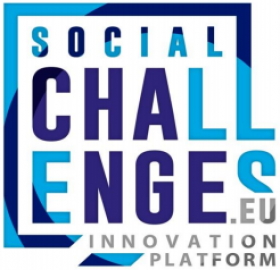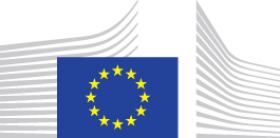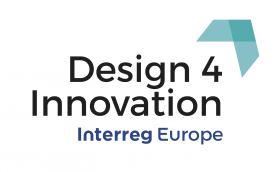Globalisation, automation, new technologies and decarbonisation have an impact on jobs, industrial sectors, business models and the way economy and society are conceived. Europe is experiencing a momentous period of change. Globalisation, automation, decarbonisation, emerging and digital technologies: they all impact on jobs, industrial sectors, business models, the economy and society as a whole.
read moreLatest news
This question will be raised at the 2017 edition of the European Tourism Day that will take place on 28 November 2017 in Brussels.The conference will gather around 400 participants (public and private sector tourism stakeholders from around Europe) to exchange views and share good practice on common challenges and opportunities in the sector.
read moreIn the framework of the project Eco-Innovation Support Services – EISS implementation, which has received funding from the European Union’s Horizon 2020, KEPA publishes the final deliverable of the project, the Design Options Paper. The Design Options Paper (DOP) is a "guide" - "manual" for other innovation agencies to design and/or implement similar, more friendly programmes and services on environmental and energy performance of SMEs.
read moreThe European Commission, together with the region Hauts-de-France, announced on 10 October, the winners of the 2nd call for projects under the Urban Innovative Actions initiative. The initiative aims to provide urban areas throughout Europe with resources to test new and unproven solutions to address urban challenges. Out of 206 applications, 16 cities were selected to test, within 3 years, their innovative solutions to the following challenges:
read moreThe first semester of Design4Innovation was a busy six months for our project partners. We hit the ground running and held two partnership meetings. Both partnership meetings, in Bruges and in Thessaloniki were successful in terms of interregional learning and taking us closer to developing Design Action Plans and influencing Operational Programmes in our regions. After each meeting partners are bringing the knowledge back to the regions - discussing the project progress with their Stakeholder Groups and disseminating the learnings during promotional events.
read moreThe Commission publishes the 7th Cohesion report, taking the pulse of EU regions, drawing lessons from cohesion spending during the crisis years and setting the scene for Cohesion Policy after 2020. Analysing the current state of the EU's economic, social and territorial cohesion, the Cohesion report brings our Union under a magnifying glass: Europe's economy is bouncing back but disparities persist between and within our Member States
read moreThe purpose of this targeted consultation is to receive stakeholder feedback on the draft Guidance on Public Procurement of Innovation, announced in the Public Procurement package of 3 October 2017. This website outlines the major features of the draft Guidance, as well as the consultation process.
read moreAfter the success of the Pilot Project which involved a total of 79 small-medium businesses (SME) and 34 transnational partnerships between European enterprises, WORTH Partnership Project is back with renewed expectations. Embarking on a 4 year journey, the new objective is to support 150 cross-boundary partnership projects, Involving a minimum of 450 companies (SMEs and startups). Worth Partnership Project is funded by COSME programme of the European Union to support collaborations between SMEs and start-ups of designers, art & craft and creative people with tech firms and manufacturers to create innovative and disruptive products and ideas.
read moreThe Social Challenges Innovation Platform launched its first open call for solutions on 21 September. The social challenges innovation platform is a European online ecosystem. It promotes interaction between social innovation stakeholders for the co-development and uptake of sustainable and marketable innovations with a clear social impact.
read more
The Commission has launched the first full version of the European classification of Skills, Competencies, Occupations and Qualifications (ESCO). The classification is available in 26 languages (the 24 EU languages, Icelandic and Norwegian). ESCO facilitates the dialogue between labour market and the education/training sector by providing a common language that could help overcome labour market imbalances and increase occupational and geographical mobility in the EU.
read moreBEDA European Design Forum, held in Vilnius on 8th June 2017, brought together design stakeholders representing 19 European countries to debate and co-create the future of design support in Europe. The delegates had a chance to learn, share experience and discuss design support in three panels focused on political, financial and organisational perspectives.
read moreThe 2nd edition of the 'Grow your region' conference will take place in Valencia, Spain, on 8 and 9 November. Save the date! The event is co-organised by the European Commission's Directorate-Generals for 'Internal Market, Industry, Entrepreneurship and SMEs' and for 'Regional and Urban Policy', in cooperation with the Valencia Regional Authority.
read more   Showing page 2 from 53 pages Showing page 2 from 53 pages   |













